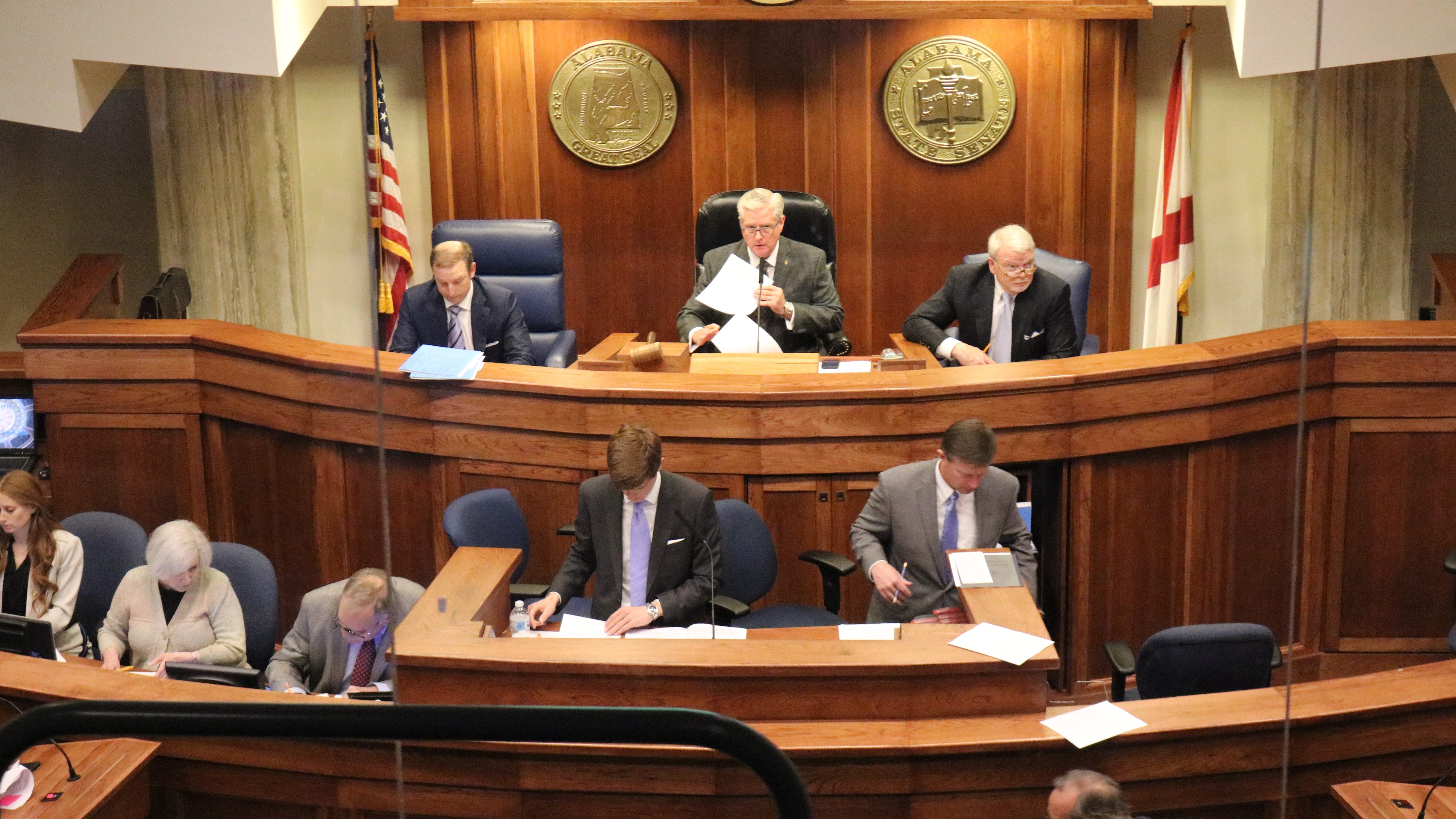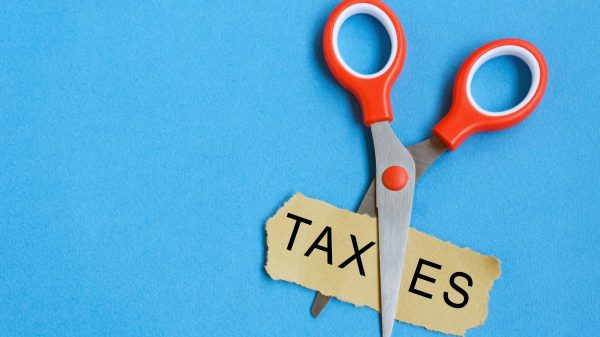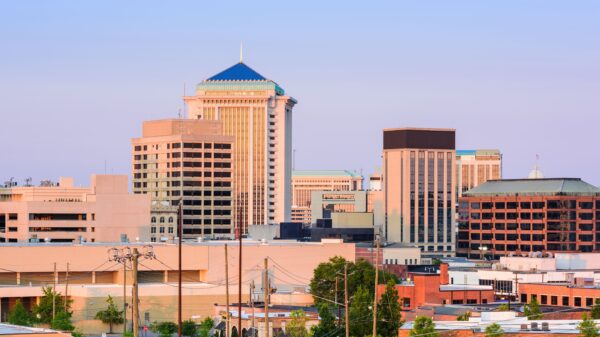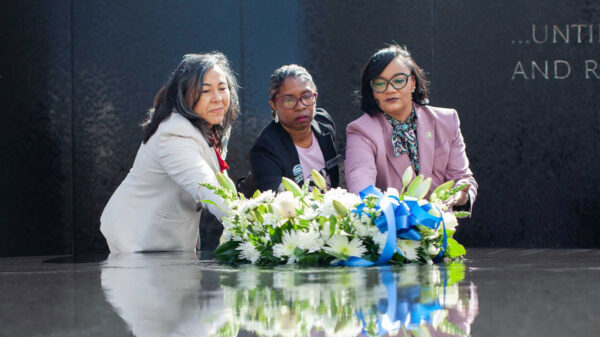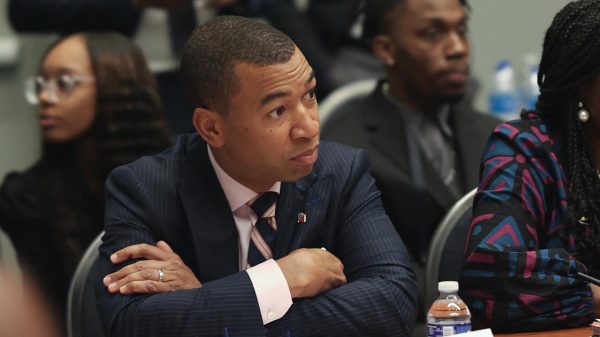Tuesday, the Alabama League of Municipalities presented their 2019 legislative agenda to the state press corps in Montgomery.
Ken Smith has been the Executive Director of the League of Municipalities since 2006.
Smith said that the League has been in existence for 84 years and that they look forward to moving forward with all stake holders to pass their legislative priorities in the upcoming legislative session.
Greg Cochran is the chief lobbyist for the League.
Cochran said that they have also had a good working relationship with legislators; but in recent years “We have seen this dynamic shift in the legislature,” We have had to become more reactionary. In the last few years we have seen more of a change to preempt a city.
“We work hand in hand with the big five,” Cochran said. “There are unique challenges for the big five that other cities don’t have.”
The big five are Birmingham, Montgomery, Huntsville, Mobile, and Tuscaloosa.
Cochran said that the first priority on their legislative agenda is passage of the motor fuel tax.
“We are in agreement on the plan,” Cochran said. We met endless hours with the governor’s office and the Alabama Department of Transportation (ALDOT). “We have come into agreement.” The plan will be a 12 cent a gallon increase in gasoline and diesel fuel taxes. Eight cents will go to the state. Three cents will go to the counties and one cent for the municipalities.
Cochran said that that is necessary to get us back to where we need to be to remain competitive with neighboring states.
Cochran said that there are a number of projects that are needed, “None more important than the Mobile port so that we can continue to import raw materials to our manufacturers” and so they can export their goods.
Cochran said that ALDOT and the Governor will have a grant program awarded by ALDOT.
Cochran said that online sales tax collections are another item on the League’s agenda.
The legislature passed a sales tax on out of state online retailers of eight percent. They tweaked it last year to include online malls, third party retailers like Amazon, Wal-Mart.com, and E-bay.
“Wal-mart.com’s sales were up 43 percent last year,” Cochran said. That went into effect in January. It replaces what our cities are losing in the brick and mortar sales. That is 8 percent now; but the average sales tax in the state is 9.5 percent, we want that raised to 9.5 percent so the competitive advantage that the online sales have will be eliminated.
People are suing the employees of cities, Cochran said. “Employee liability is very important to our cities. We want to make sure that our employees have coverage.”
Unfunded mandates by the legislature is another issue, Cochran said. There is a bill to provide firefighters with cancer coverage. “They originally wanted to put it under workers comp that would potentially bankrupt our cities. We are looking at alternatives. Such as picking up their deductibles and copays.”
“Preemption is another issue that we are looking at,” Cochran said. AT&T, Verizon, and the cell companies are looking at putting up more cell towers. Instead of negotiating with municipalities they want to negotiate one deal with the state. We are opposing that bill.
New state Senator Chris Elliott has a bill that would end police and planning jurisdictions, Cochran said. We feel that is a bad bill. If you look at how cities grow the only way to prepare for new homes coming it to the city is to have jurisdictional authority with police and planning. We want to continue to have that authority.
Montgomery Mayor Todd Strange said that online sales taxes have been coming in for a couple of years now on a voluntary basis. $12 million came in to the state in December. We anticipate on that bringing in $30 million headed to 120 million. The brick and mortar are suffering. Requiring online retailers to pay sales taxes keeps the local retailer in business.
Opelika Mayor Gary Fuller said that, “Those local businesses are the people that support the Opelika band, cheerleaders. and those sorts of things. We are not going to see that from Amazon. We are all concerned about those local small businesses.”
Guntersville Mayor Leigh Dollar said, “It is imperatives that we do everything possible to make sure that they stay in business.
Cochran said, “Sales tax and business licenses drive the economy of our cities. We want to make sure that our local businesses have an opportunity to thrive.”
Dollar said that small business is even more important for the small cities, because the big box stores don’t come here.
Athens Mayor Ronnie Marks said, “38.7 percent of our business is sales tax and business licenses.”
“Some of the issues that affect the big cities are different,” Strange said. “At the end of the day we want to be representatives of the league. The port of Mobile is so vital to all of us, particularly with Hyundai being here.”
Strange said that he gets phone calls every day about accidents on I-65 or I-85; but, “Those are state highways they are not Montgomery highways; so we work collaboratively with the state and the county.”
“We are pleased to stand with the governor,” Strange said on the fuel tax increase. “This is a user fee.”
Ken Smith is the Executive Director of the League of Municipalities.
“It takes a collaborative effort,” Smith said. We come together to learn from each other and we appreciate what all of our members do. They do this out of love for their communities.
The Alabama Political Reporter asked: The opponents of the gas tax point out that according to the U.S. Census from 2010 to 2017 the population of Alabama only increased by only 90,000 people. Florida and Georgia have a lot of growth we really don’t so why are we sinking all of this money into road work for growth, when we have no growth?
Strange replied, “How do yi think you get to Florida? You go through Alabama. It is a user fee. You talk to a farmer who is trying to get products to market.
“75 percent of all the miles driven in Montgomery County are in the city,” Strange said. “55 percent of all the road miles driven statewide are in the cities. That is why we say we ought to get 50 percent (of the road tax money).
“We are not going to get the growth unless we address the infrastructure,” Mayor Dollar said. “We have to invest back into our state.”
“How many years ago should we have addressed the interchange in Birmingham,” Strang said. How many years ago should we have addressed I-65.
“We as a state have to tell our story,” Dollar said. “I have had visitors from out of state and they act so surprised that this is Alabama. Yes, we have running water. Yes, we have paved streets. We have internet.
Smith said a lot of this is about cars getting more fuel efficient so that there is less and less revenue coming in in fuel taxes.
“I don’t want my car out of align every time I run on Alabama roads either,” Dollar said.
Fuller said, “The total tax burden we have has go to be 50th in total per capital burden. None of us like taxes I wish we could have gotten it done on our good looks and charm; but it takes money. Most of the folks in Alabama live in cities.”
Cochran said the last time we have addressed the fuel taxes was 1992. We have not addressed this in two generations.
APR asked: What would happen to the cities and towns if the state banned sales taxes on food.
“It would be devastating to cities and schools,” Dollar said. Though it would depend on how the bill written; but without the revenue from sales taxes on foods we would have to cut services and have layoffs.
APR asked: A lot of people get all of their meats and some get whole meals delivered by one of these meal plans do they pay any sales taxes?
“We are starting to with the 8 percent,” Strange said.
The 2019 legislative session begins in March.







































